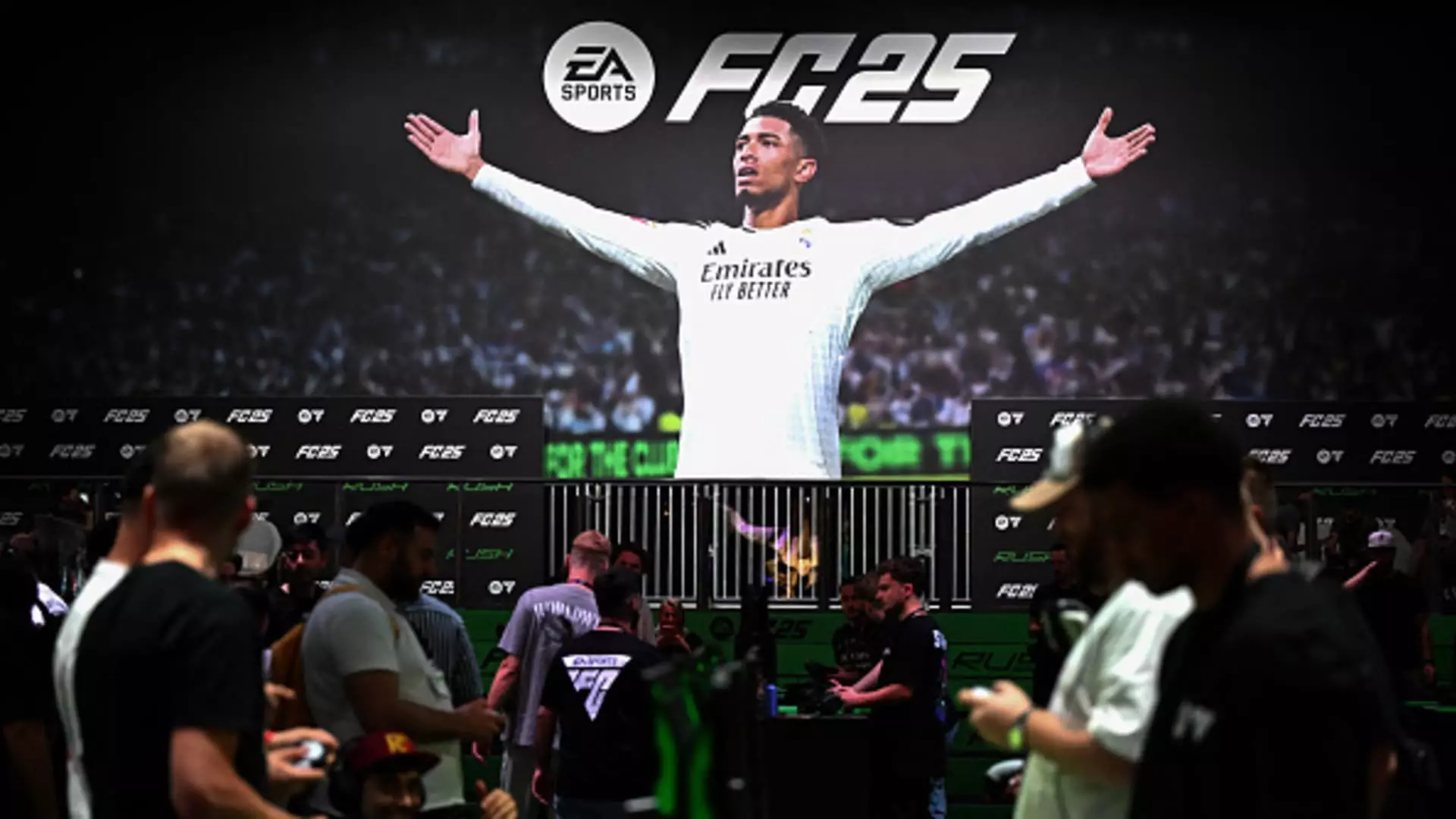Electronic Arts (EA) made headlines recently with a stark reduction in its full-year bookings forecast, leading to a swift 7% drop in its stock price during after-hours trading. The gaming giant attributed this shift to a series of underwhelming titles, particularly the EA Sports FC soccer franchise, which has struggled to maintain its previous momentum. For the fiscal third quarter, EA revealed an estimated net booking of $2.215 billion, a disappointing figure compared to earlier expectations ranging between $2.4 billion and $2.55 billion. Additionally, EA projected revenue of approximately $1.88 billion for the December quarter, alongside diluted earnings per share of $1.11. This revision signals not only internal challenges but also the modification of investor confidence.
Perhaps the most alarming aspect of EA’s announcement is the evident decline in its once-dominant soccer franchise, which has been a staple of its portfolio since 1993. Following the conclusion of EA’s partnership with FIFA in 2022, EA Sports FC has faced significant hurdles, and the company now anticipates a year-over-year decline in net bookings from this sector. The challenges extend beyond mere sales figures; they underscore a potential transformation in the gaming landscape that could diminish the allure of iconic franchises. For EA, the repercussions of this downturn could be extensive, impacting not just financial results but also the company’s reputation as an innovator in sports gaming.
The company also provided insights regarding its role-playing game, “Dragon Age,” which saw only 1.5 million players during the quarter, dramatically underperforming by nearly 50% of expectations. This stark reality raises questions about player engagement and satisfaction. Andrew Wilson, EA’s CEO, maintained that the company continued to deliver high-quality gaming experiences across its offerings. However, the disappointing performance of both Dragon Age and EA Sports FC suggests that what the company perceives as “high quality” may not resonate with today’s audience.
Looking ahead, EA’s projections indicate a troubling trend: the company expects a decline in bookings from its Global Football division, which has historically been a major contributor to live service earnings. The drop in live services performance signals a shift in engagement strategies and highlights the potential need for EA to rethink its approach to user retention and monetization. Although EA has attempted to revitalize the EA Sports FC experience with content updates and gameplay improvements, evidenced by the positive reception of its “Team of the Year” update, it appears that revitalization efforts have yet to produce substantial results.
As EA prepares for its upcoming quarterly earnings report, the company stands at a critical juncture. The need to adapt to shifting consumer preferences has never been more apparent. As the landscape of gaming evolves, EA must confront the reality that iconic franchises alone may not guarantee success. The pressures of a competitive market require an innovative, agile approach to both game development and audience engagement if EA wishes to reclaim its position as a leading force in the gaming industry.

